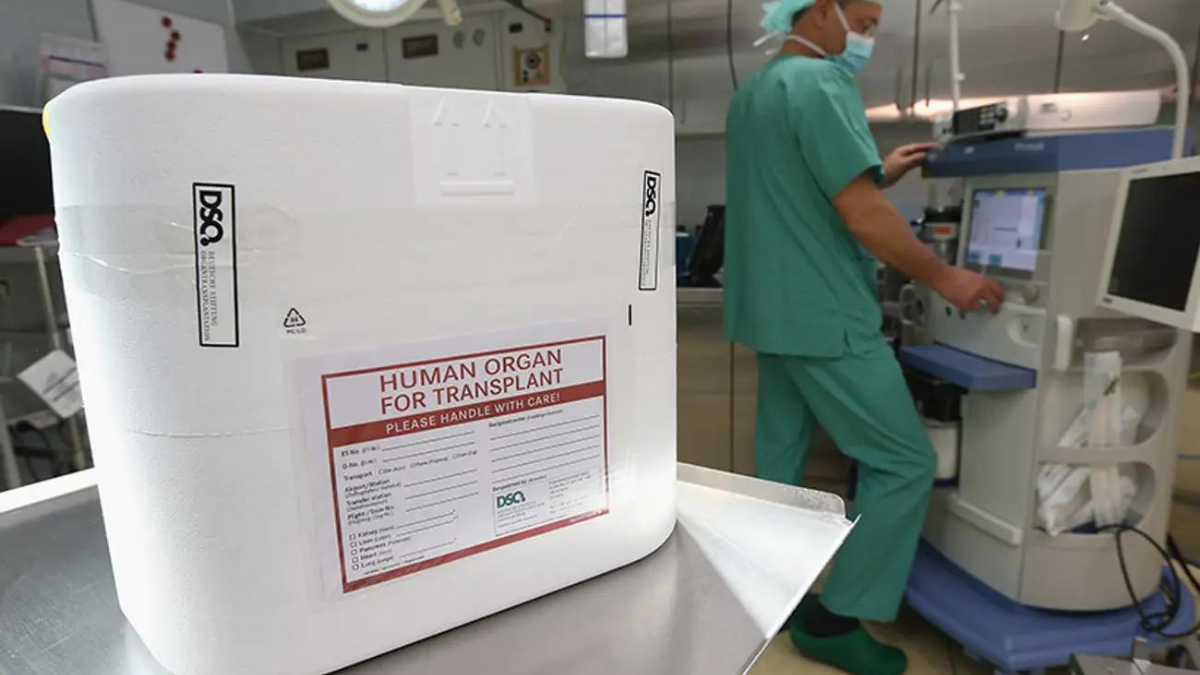

The EU’s Antihumanism
Why new regulations liberating the use of embryonic human beings to mitigate medical issues reveals a darker side of Western medicine.
10/18/23
John Stonestreet and Jared Hayden

Late last month, a large majority of Members of the European Parliament (MEP) voted to pass a regulation that will protect the donation and destruction of so-called “substances of human origin” for the sake of “patient health.” According to European media service Euractive, the regulation is intended to “set a framework to provide donors and patients with a future-proof and harmonised system for transplants and donations.” However, a group of European Union Catholic bishops warns that the language of “substances of human origin” (or SoHOs) includes not only donated blood or tissues from adults, but also embryos and fetuses.
The language is so broad, according to the bishops, not only would the donation of unwanted, artificially inseminated embryos and unfertilized cells be permitted, but also unwanted, naturally conceived preborn children prior to viability. And, because the regulation requires special steps to ensure that “genetic conditions” not be transmitted to SoHO recipients and offspring, the regulation could give researchers and practitioners license to destroy embryos with, say, Down syndrome or other disabilities diagnosed in utero.
Classifying embryonic human beings as “substances of human origin” erases the fundamental difference between embryos and other human cells. Unlike a skin cell or a blood cell, a zygote of an embryo is a whole, separate, valuable human being. Ignoring or disregarding that fundamental distinction is to remove all barriers from any person, born or unborn, being considered a mere “substance of human origin.”
Part of what is driving the increased interest in harvesting fetal tissue and embryos for use in medical treatment is to address what’s been billed as an “organ shortage crisis.” Though organ donation has only been medically viable for a few decades, it is now deemed a crisis that the demand for organs far outpaces the supply. As ethically fraught as that is on its own terms, around the same time as the new European Union regulation was passed, a group of American researchers suggested that neonatal organ donation could significantly mitigate organ “shortages.” That suggestion, especially in light of new regulations that categorize embryos as “substances of human origin” that can be used for medical purposes, more than opens the door to dangerous ethical ground.
Even treatments purportedly pursued for medical purposes can undermine the meaning of medicine, as well as accepted standards of medical care. Ever since the ancient Greek doctor Hippocrates, doctors have taken an oath to do no harm. Medical “care” that intentionally harms any person for no medical purpose contradicts the very meaning of “care,” and therefore medicine.
The recent, troubling regulations from the European Union are the latest expression of an anti-humanism on the rise in Western medicine. By treating whole, separate, valuable human beings as commodities, the new regulation will harm more than it helps. Like other examples of harm that pass in the name of “medical care,” whether Canadian doctors harvesting organs from medical-aid-in-dying (MAID) patients, or doctors in Denmark and Iceland claiming to eradicate Down syndrome by exterminating all children with Down syndrome in utero, or U.S. doctors perpetuating chemical, cosmetic, and surgical mutilation of minors with gender dysphoria, Western medicine increasingly serves a progressive ideological master. We may try to cover up these evils with Orwellian terminology, but the profoundly anti-human ideas at the root of what we call medicine will have consequences … and victims.
This Breakpoint was co-authored by Jared Eckert. For more resources to live like a Christian in this cultural moment, go to breakpoint.org.
Have a Follow-up Question?
Up
Next















